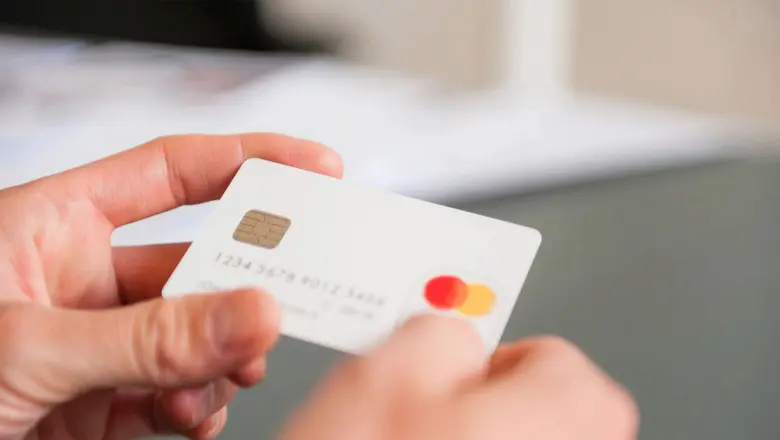The Difference Between Secured vs Unsecured Debt
Debts fall into two broad categories: secured debt and unsecured debt. Though both types of debt share some similarities, there is one key difference. Secured debt is backed by collateral, and unsecured debt isn’t.
It’s important for borrowers to understand how secured and unsecured debt work. That’s because the type of debt you choose could impact such things as loan terms and interest rate and whether you can get credit. What’s more, knowing the difference between these two types of debt can also be one tool to help you determine the order in which you’ll repay the debt.
Key Points
• Secured debt involves collateral, reducing lender risk and often leading to lower interest rates.
• Unsecured debt provides more usage flexibility but can damage credit scores if not managed properly.
• The avalanche method prioritizes paying off high-interest debts first to save on interest.
• Debt consolidation simplifies repayment by merging multiple debts into one, often with a lower interest rate.
• Unsecured loans may result in wage garnishment if payments are defaulted.
What Is Secured Debt?
Secured debts are backed, or secured, by an asset, such as your house. This asset acts as collateral for the debt, and your lender is what is known as the lien holder. If you default on a secured debt, the lien gives your lender the right to seize the asset and sell it to settle your debt.
Mortgages and auto loans are two common types of secured debt. A mortgage loan is secured by the house, and an auto loan is secured by the vehicle. You may also encounter title loans, which allow you to use the title of your vehicle to secure other loans once you own a car outright.
What Are the Possible Benefits of Secured Loans?
Because lenders can seize an asset to pay off the debt, secured loans are considered less risky for the lender than unsecured loans. “Low risk” for a lender can translate into benefits for borrowers. Secured loans generally offer better financing terms, such as lower interest rates.
Secured loans may also be easier for borrowers to qualify for. For example, secured loans may have less stringent requirements for credit score compared to unsecured loans, which generally rely more on the actual credit and income profile of the customer.
What Are the Stakes?
The stakes for borrowers can be pretty high for secured loans. After all, consider what happens if you stop paying these debts. (Timeframes for secured loan default can vary depending upon the type of secured debt and lender terms.) The bank can seize the secured asset, which might be the house you live in or the car you need to drive your kids to school or yourself to work.
Failing to pay your debt, or even paying it late, can possibly have a negative effect on your credit score and your ability to secure future credit, at least in the shorter term.
Recommended: What Is the Trump Credit Card Interest Cap?
What Is Unsecured Debt?
Unsecured debt is not backed up by collateral. Lenders do not generally have the right to seize your assets to pay off unsecured debt. Examples of unsecured debt include credit cards, student loans, and some personal loans.
What Are Some Benefits of Unsecured Loans?
Unsecured loans can be less risky for borrowers because failing to pay them off does not usually result in your lender seizing important assets.
Unsecured loans often offer some flexibility, while secured loans can require that you use the money you borrow for very specific purposes, like buying a house or a car. With the exception of student loans, unsecured debt often allows you to use the money you borrow at your discretion.
You can buy whatever you want on a credit card, and you can use personal loans for almost any personal expense, including home renovations, buying a boat, or even paying off other debts.
Recommended: Typical Personal Loan Requirements
What Are the Stakes?
Though unsecured loans are less risky in some ways for borrowers, they are more risky for lenders. As a result, unsecured loans typically carry higher interest rates in comparison.
Even though these loans aren’t backed by an asset, missing payments can still have some pretty serious ramifications. First, as with secured loans, missed payments can negatively impact your credit score. A delinquent or default credit reporting can make it harder to secure additional loans, at least in the near future.
Not only that but if a borrower fails to pay off the unsecured debt, the lender may hire a collections agency to help them recover it. The collections agency may continually contact the borrower until arrangements to pay are made.
If that doesn’t work, the lender can take the borrower to court and ask to have wages garnished or, in some extreme cases, may even put a lien on an asset until the debt is paid off.
💡 Quick Tip: Everyone’s talking about capping credit card interest rates. But it’s easy to swap high-interest debt for a lower-interest personal loan. SoFi credit card consolidation loans are so popular because they’re cheaper, safer, and more transparent.
Managing Secured and Unsecured Debt
Knowing whether a loan is secured or unsecured is one tool to help you figure out how to prioritize paying off your debt. If you’ve got some extra cash and want to make additional payments, there are a number of strategies for paying down your debt.
You might consider prioritizing your unsecured debt. The relatively higher interest typically associated with these debts can make them harder to pay off and could end up costing you more money in the long run. In this case, you might consider a budgeting strategy like the avalanche method to tackle your debts, whereby you’d direct extra payments toward your highest-interest rate debt first. (Be sure you have enough money to make at least minimum payments on all your debts before you start making extra payments on any one debt, of course.)
You can also manage your high-interest debt by consolidating it under one personal loan. A personal loan can be used to pay off many other debts, leaving the borrower with only one loan — ideally at a lower interest rate. Shop around at different lenders for the best rate and terms you can find.
However, it can be smart to be cautious of personal loans that offer extended repayment terms. These loans lengthen the period of time over which you pay off your loan and may seem attractive through lower monthly payment options. However, choosing a longer term likely means you’ll end up paying more in interest over time.
Recommended: How to Apply for a Personal Loan
The Takeaway
Secured debt is backed up by collateral, such as a house. Unsecured debt doesn’t require collateral. The type of debt a borrower chooses may impact things like the cost of a loan and whether they can get credit. It can also help determine the order in which debt is repaid. Since unsecured loans could have higher interest rates or fees, you may decide to consider prioritizing paying down that debt first. Consolidating high-interest debt under one personal loan, ideally at a lower interest rate, is another strategy.
Credit cards have an average APR of 20%–25%, and your balance can sit for years with almost no principal reduction. Personal loan interest rates average 12%, with a guaranteed payoff date in 2 to 7 years. If you’re carrying a balance of $5,000 or more on a high-interest credit card, consider a SoFi Personal Loan instead. See your rate in minutes.
FAQ
What is an example of an unsecured loan?
An example of an unsecured loan would be an unsecured personal loan. In this case, your financial credentials are evaluated when you apply, but you don’t have to put up an asset as collateral to obtain the loan.
Is it better to get an unsecured or secured loan?
This decision depends on your needs and your situation. A personal loan can be faster to obtain and typically doesn’t require collateral, but the interest rate may be higher than what you would be offered for a secured loan, in which you put up collateral and likely face a longer path to approval.
What’s the difference between a secured and unsecured loan?
With an unsecured loan, you don’t have to put up collateral. With a secured loan, you do, such as using your house as collateral for a home equity loan. Typically, secured loans are seen as lower risk to lenders and therefore have lower interest rates.
SoFi Loan Products
SoFi loans are originated by SoFi Bank, N.A., NMLS #696891 (Member FDIC). For additional product-specific legal and licensing information, see SoFi.com/legal. Equal Housing Lender.
*Awards or rankings from NerdWallet are not indicative of future success or results. This award and its ratings are independently determined and awarded by their respective publications.
Disclaimer: Many factors affect your credit scores and the interest rates you may receive. SoFi is not a Credit Repair Organization as defined under federal or state law, including the Credit Repair Organizations Act. SoFi does not provide “credit repair” services or advice or assistance regarding “rebuilding” or “improving” your credit record, credit history, or credit rating. For details, see the FTC’s website .
Financial Tips & Strategies: The tips provided on this website are of a general nature and do not take into account your specific objectives, financial situation, and needs. You should always consider their appropriateness given your own circumstances.
Third Party Trademarks: Certified Financial Planner Board of Standards Center for Financial Planning, Inc. owns and licenses the certification marks CFP®, CERTIFIED FINANCIAL PLANNER®
SOPL-Q225-098
Read more



